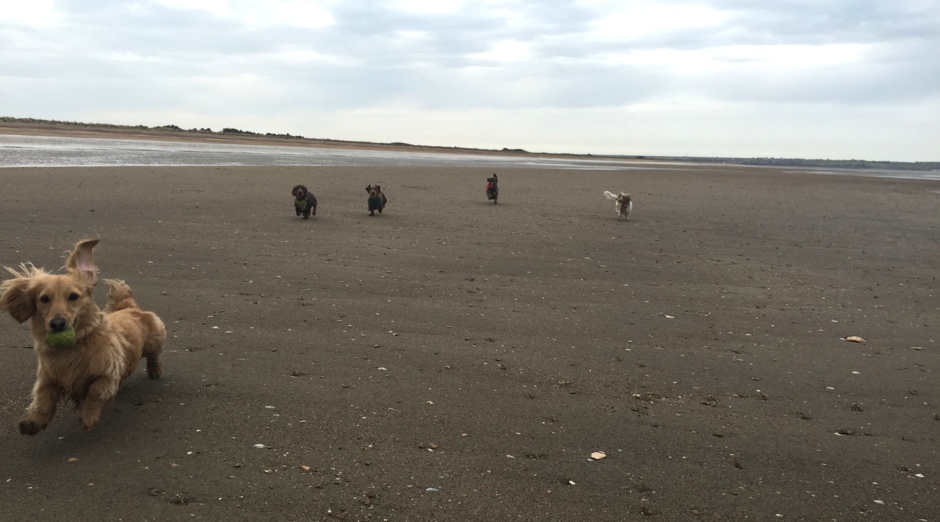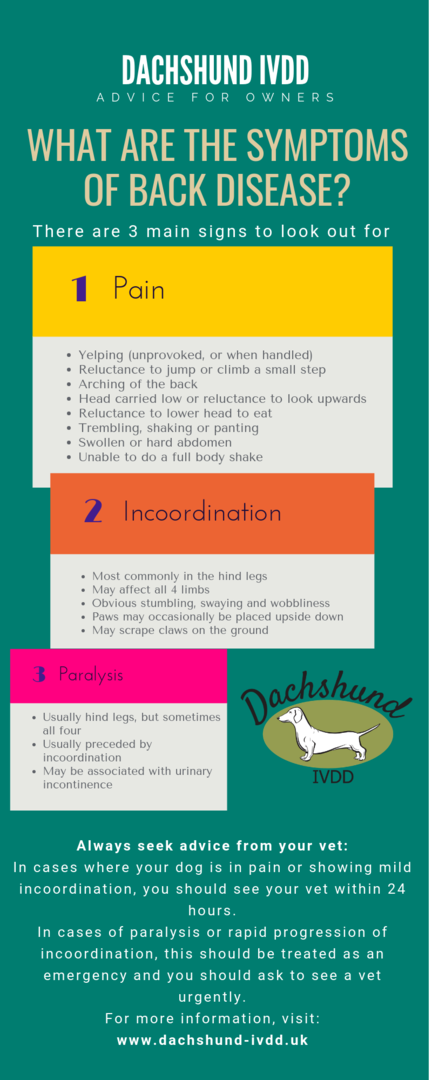
Symptoms
It's really important that your dog gets the right diagnosis, quickly. In a survey among Dachshund owners on our Facebook Group, only half the IVDD cases were correctly diagnosed by their general practice vet on first presentation. Shockingly, a quarter of vets incorrectly diagnosed the problem, for example saying it was muscle pain, arthritis or a stomach problem. Some dogs have presented with anal gland problems which the vet may empty but the underlying pain, due to IVDD, remains. A further quarter of vets were unsure about the symptoms at first examination.
There are three main signs to look out for:
- Pain
- Incoordination (ataxia)
- Paralysis
Your dog won't necessarily have all of these, so you need to know what to look out for:
|
Clinical signs
|
What to look out for
|
| Pain |
- Yelping (unprovoked, or when handled) - Reluctance to jump or climb - Arching of the back - Head carried low - Reluctance to lower head to eat - Reluctance to look upwards - Apparent tummy pain or flank nibbling
|
| Incoordination |
- Most commonly in the hind legs - May affect all 4 limbs - Obvious stumbling, swaying and wobbliness - Paws may occasionally be placed upside down - May scrape claws on the ground
|
| Paralysis |
- Usually hind legs, but sometimes all four - Usually preceded by incoordination - May be associated with urinary incontinence
|
Dachshund with IVDD symptoms (Grade 5):
Dachshund with cervical (neck) IVDD symptoms:
What to do
Always seek advice from your vet:
In cases where your dog is in pain or showing mild incoordination, you should see your vet within 24 hours. If you are at all worried about your dog's behaviour or if it is showing unusual symptoms and apparent pain, you should consult your vet.
Until you can get to see the vet, ensure your dog is confined to a small area (crate or pen) and not allowed to run, jump or able to climb on or off furniture.
In cases of paralysis or rapid progression of incoordination, this should be treated as an emergency and you should ask to see a vet urgently.
How to pick up your dog if it has back problems
Video from k9BackPack YouTube Channel (no audio)


